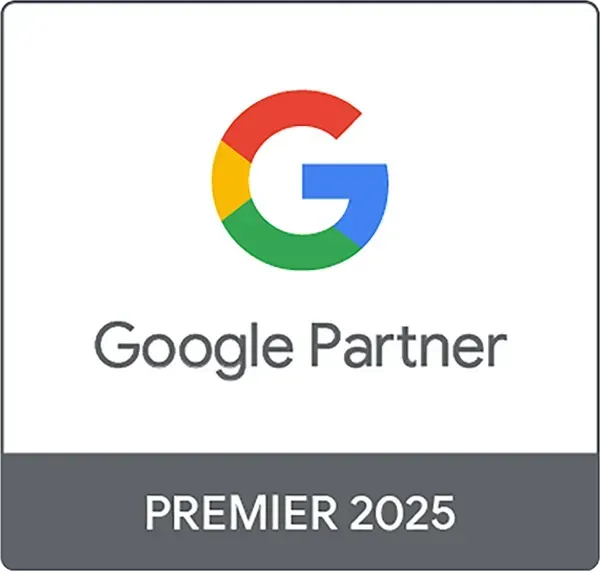Stop Googling Yourself! How Searching For Your Business Hurts Your Results
It seems harmless enough: You’re curious about how your company is ranking online, so you plug your business’s name into Google. But Googling yourself can have unintended consequences — ones that hurt your organic results and can undermine the efficacy of your paid Google search campaign. Brand owners may not realize they’re creating a self-fulfilling prophecy: By searching for your own ads to gauge their effectiveness, you’re actually making them less effective.
As Director of Advertising here at Dayta, I work with our team and clients on everything from initial strategy to evaluating results. It’s within that evaluation and reporting stage that I often see the negative side-effects of clients searching for their own ads. Google's search algorithms take into account your personal browsing history, location, and even the device used to tailor the search results you see. This means that if you frequently visit your own website or similar sites, Google might rank your business higher in your personal search results compared to what an unbiased user might see.

Why Isn’t My Business Showing Up on Google?
Businesses often want to know why they’re not showing up organically or in ads when they Google themselves. There are many reasons why your business may not be appearing when you search, and unfortunately, many of them have to do with the insider baseball of Google’s algorithm. That means giving a clear-cut answer to this question can be difficult. While by no means all-encompassing, we can break down the most common problems and their effects to a few key components:
- Location. Where are you searching from? Because of the proven power of local search, Google will try to show the most relevant — i.e., the closest — business to you when you’re searching. If you’re searching from an area that would not include your business
in the local pack, you’re unlikely to see your business in organic search results. IP targeting has also been known to
mismatch users’ physical locations, creating wonky results; you may visit a site while physically located in one place, but Google Analytics may show your location elsewhere in its real-time reporting.
- Device.
Are you browsing on a desktop computer or from a mobile device? Your choice of device can affect the results you see while searching. According to a 2021 study conducted by SEMRush, only 17% of websites retained their positions across both mobile and desktop search engine results pages (SERPs) and 37% of URLs were actually thrown out of the top 10 when the search query was made from a mobile device.
- SEO.
Is your website optimized to rank highly for your audience’s actual search terms? Search engine optimization (SEO) boosts your site’s visibility in search engines by including the most relevant keywords in your site copy, including page titles, headlines, descriptions, etc. SEO is an easy and extremely effective way to bump your business up the search engine results ladder, not to mention the cost-savings it could deliver: According to Terakeet, SEO can reduce the cost of customer acquisition by an average of 87.41% compared to other digital advertising efforts.
- Action.
Say you’re doing a search, and your business shows up in the result. Great! You’ve seen what you needed to see, so you don’t click on your website. No problems here, right? Wrong. By not clicking on the website, you’re telling Google that you’re not interested in that search result, negatively impacting your SEO — and possibly preventing you from seeing your business in future search results.
- Bouncing. On the other hand, if you’re searching and are taking the additional step of clicking on your website, but leaving right away, that tells Google that your website didn’t meet the search term’s needs. Again, this can negatively impact SEO and future search results.
- Paid Impressions. When running paid Google Search Ads, there is real money to be lost in searching for your keywords. If you’re not clicking on your ad when you come across it, you’re adding an impression that lowers your click-through rate. This, in turn, can harm the quality score of your Google Ad campaign and lead to increased costs. That said, if you do click on your ad, you’re paying for that click. It’s a lose-lose situation — better not to search for your ad at all. Instead, utilize the Ad Preview & Diagnostics tool within your Google Ads account to conduct test searches without impacting your actual performance.
In addition to these critical factors, new technological developments will further complicate the imperfect science of search rankings now and in the future. Artificial intelligence (AI) is already making waves in this regard: Google will soon be incorporating Bard, its proprietary chatbot, into SERPs to build upon your historical searches and prompts to deliver even more relevant search results.
What Can I Do About It?
Clearly, searching for your own business is like a Choose Your Own Adventure novel with only unhappy endings: Disappointing and a waste of time. But as your marketing team, we understand that you have a vested interest in whether or not your ads are running and performing. That’s why we place so much emphasis on the evaluating and reporting stage of our partnership with our clients — we want you to trust us to not only provide you with that data, but also to give you productive, informed advice on what to do with it. We utilize multiple tools such as Google Analytics, Search Console & SEMRush to give you the fullest possible picture of how your business is showing up in Google’s world, and we’re more than happy to consult with you on how to improve those results if necessary.
For instance, if our data indicates that most people who click on your website are quickly bouncing, we may suggest a website audit. We have tools at Dayta that will test the quality of your website and, based on our findings, offer improvements. These tests and tools offer a clearer picture of any issues and a solutions-based approach to improvement, as opposed to what little information can be gleaned from a business owner doing searches on their own.
Or maybe people are searching for your business, but those searches are resulting in no-clicks. We’ve reached a point in time where Google has created their own information ecosystem to provide users with answers without ever having to leave their platform. SEMRush reported that
at least 25.6% of all Google searches made last year were zero-click. When it comes to fighting the no-click craze, your Google Business Profile is king. GBP is essentially free real estate provided by Google, and it is often woefully under-utilized. Together, we might decide to build out your profile to ensure it’s optimized properly. We recommend filling in every applicable detail and consistently adding new posts with a strong call to action, whether that’s clicking on to your website or giving you a call. If GBP is populating for searchers, that means they’re either looking for you specifically or are in your area — don’t waste this golden opportunity to give potential customers exactly what they want!
The Bottom Line
The temptation to Google your own business “just to check” on how you show up organically or how your ads are performing is strong, but the negative repercussions far outweigh the momentary reassurance.
The best course of action? Trust your marketing team. This is what you pay them for, after all! By using the tools at their disposal to see where outcomes could improve, together you can forge a path forward that ensures both the success of your business’s ads and your satisfaction as a client — no self-searches required.
Share This Post





